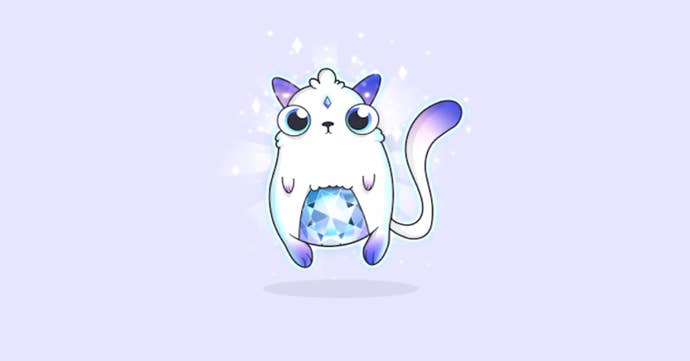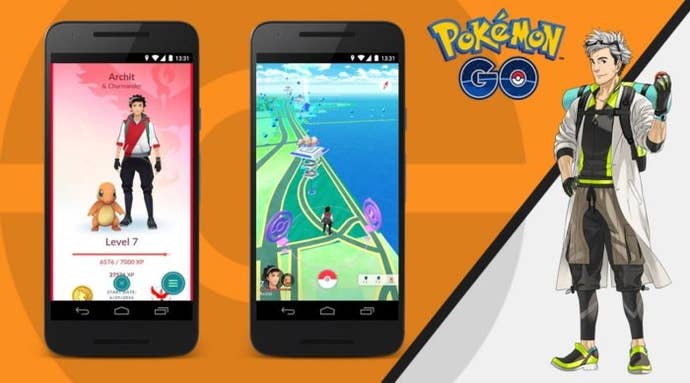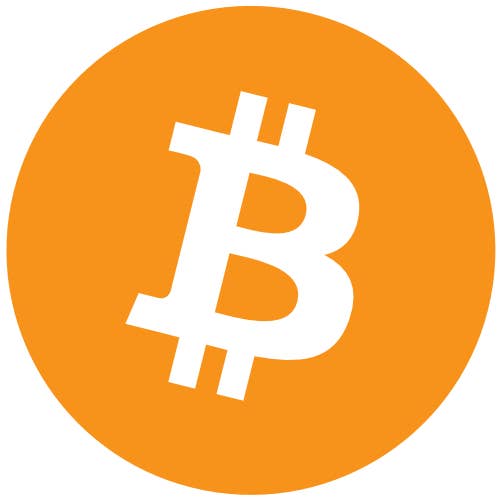Blockchain and You: What Does Blockchain Even Do for Video Games?
Who knows?
This article first appeared on USgamer, a partner publication of VG247. Some content, such as this article, has been migrated to VG247 for posterity after USgamer's closure - but it has not been edited or further vetted by the VG247 team.
Around sometime last year, I started getting emails about a magical technology called the "Blockchain" descending into the video game industry to usher in a new golden age. Okay, so I'm being hyperbolic but the amount of blockchain related emails I've gotten since the rise of cryptocurrency is no joke.
Every time I get a new email pitching me the benefits of blockchain it sometimes sounds like being pitched snake oil. If there's a problem in the video game industry, you can bet it can be solved with the cryptocurrency backing powers of the blockchain. It also makes it difficult to parse what exactly the technology can bring to video games other than "solve all the problems and make all the money."

A quick search for "blockchain" in my email inbox will bring up all manner of proposed blockchain gaming ventures. There are new cryptocurrencies announced that are geared towards gamers, mobile games that will let players mine cryptocurrency while playing, some big new investment for a blockchain startup. One marketing firm believes that 80 percent of players want some kind of cryptocurrency integration in the games they play. Sure. And those are just from the emails I haven't deleted.
So what is blockchain and what can it do for video games? The problem is that there's not really any one thing blockchain can give gaming. But over the course of the last couple of months I've heard some interesting possibilities and I'd like to share them with you. Even if you have absolutely zero interest in blockchain technology, companies like Ubisoft are still researching ways to integrate it into games, so it's good to know what exactly blockchain could bring to the table, if anything at all.
What is blockchain?
First things first, blockchain. What is it? The standard definition is that the blockchain is a digital, decentralized ledger. The primary benefit of blockchain is how it can record and keep track of digital information and transactions without the need of a single host organization. So the information stored on the blockchain is 1.) public 2.) verifiable, and 3.) secure (for now).
You might have heard of blockchain primarily for the technology's use in cryptocurrencies like Bitcoin. This is because blockchain is key to the initial dream that cryptocurrencies like Bitcoin could become decentralized money, free from big corporate banks and banking institutions.
But video games are material products and that egalitarian dream somewhat weakens when companies start asking how they can use this technology to make more products. With a little luck they can even profit off of it.
Blockchain in games
The first real example I heard blockchain being used in a game that wasn't some kind of new cryptocurrency or startup came at the DICE Summit this year in Las Vega, Nevada. Ubisoft's director of insights and trends Lidwine Sauer explained how blockchain technology could be leveraged into the collectible items economy in video games.
By using blockchain to register a user's in-game content and items, blockchain could create "online collectibles that are 100 percent owned by you and no one can duplicate." Sauer likens these to "digital Picassos that no one can take from you."

Blockchain's use as a decentralized register could make it so that items purchased or acquired by an individual player would be universally recognized as theirs and theirs alone.
One of the examples Sauer gives is CryptoKitties, a game that combines the monster collection mechanics of Pokemon and the blockchain.
While not a cryptocurrency in and of itself, CyrptoKitties operates off the Ethereum blockchain network and players can capture, collect, buy, trade, and breed CryptoKitties that are unique to that player. The first CyrptoKitty, Genesis, was sold on December 2, 2017 for 246.9255 Ethereum (~$117,712 USD). Genesis' value presumably comes from its rarity rather than its circa-2005 NeoPet aesthetic.
However, the other useful feature of blockchain is how it can be used to keep track of transactions and other information stored in the decentralized blockchain. Something that Pokemon Go creator John Hanke can be used to solve a fundamental problem in internet culture: harassment.
Blockchain but not cryptocurrency
"Blockchain... That's super relevant I think for games and for society generally. [Blockchain] gets around at a root problem around identity," explained Hanke at this year's GamesBeat Summit. "If you look at the toxicity, the lack of accountability, the lack of trust in terms of what we see online... It really comes to the fact that you don't know who you're talking to, you don't know who that entity really is on Twitter or even Facebook."
Hanke is referring to recent security developments in Facebook such as the Cambridge Analytica scandal which used Facebook user data to target political ads for, or the proliferation of fake social media accounts. Blockchain offers the technology to overcome anonymity that often leave actions done on the internet unaccountable.
"There is a path there to solve that problem," says Hanke in one of the rare instances where blockchain can solve a societal issue rather than a game specific one. He does have some hesitation about blockchain technology though offering that the solution is "One fraught with challenges around control and potential abuse but very interesting."

Of course Hanke is also a game designer and offers much of the other methods in which blockchain can be used in more gaming situations. "I think there are a host of potential applications ranging from just paying for things to tradable goods to games that can be recombined to make new games. Really a whole new part of the industry will open up."
Blockchain now! Buy! Buy! Buy!
Outside of CryptoKitties, the examples given by Niatnic's John Hanke and Ubisoft's Lidwine Sauer offers hypothetical applications of Blockchain rooted in products that are in development and ongoing research.
What's moving forward in blockchain is cyrptocurrency, and it's in this area that blockchain seems poised to impact game makers rather than video game players. To name two blockchain ventures I've been emailed about since January there's Robot Cache and SuperGameChain, poised as Steam and Kickstarter alternatives based off of blockchain.
The two promise more than what's possible with the current marketplace. More freedom, more profits, the ability to re-sell digital games in the case of Robot Cache (a promise I've heard from several other Crypto ventures). Of course players will be asked to opt-into the company's respective proprietary cryptocurrency and will have an opportunity to mine them if they please. You know, just for fun.

Then there are gamer-forward cryptocurrencies like Refereum and Metal which I still don't quite understand what they do. Other than the fact that you can mine it and that they're specifically for gamers.
So what can blockchain do for the games industry?
It can make publishers and developers more money, it can get gamers in on the action so long as they want to mine a variety of different cryptocurrencies. It can potentially stop harassment and make every player wealthy if they manage to score a rare item that's exclusive to them. It's a silver bullet that will solve all problems on the back of early adopters who want in on this blockchain venture or the other.
Most importantly, it's one of the industry's busiest buzzwords and it's clear that companies are willing to try everything and anything to get consumers interested in blockchain even though at its core the system is a way to track public information. And I have a feeling it's going to take some time before the games industry finds a way to utilize this technology that will benefit gamers instead of being used as a marketing feature.
Now if you'll excuse me, I just received a handful of new emails about blockchain startups while writing this article.
